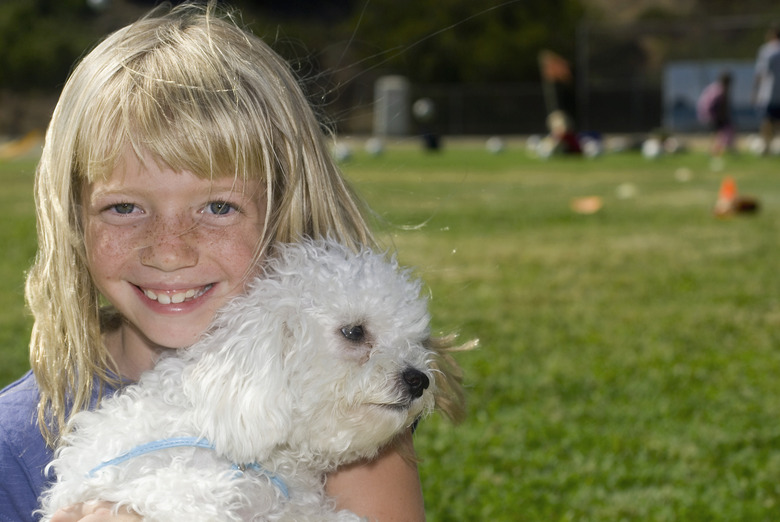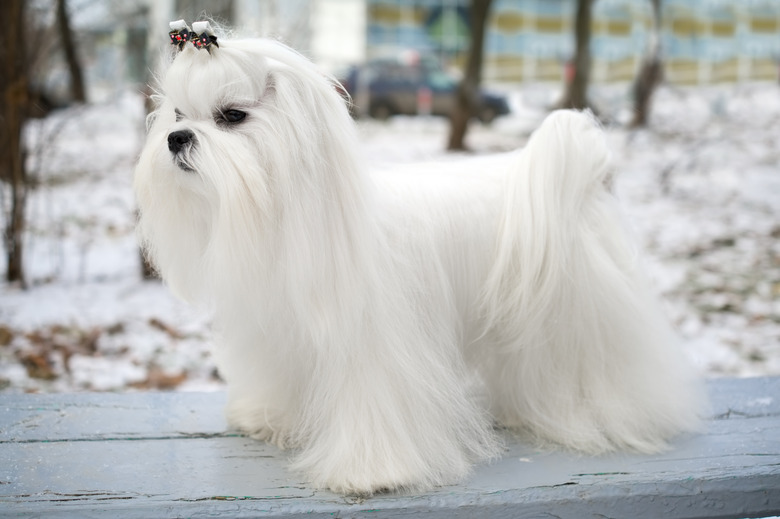Skin Disorders In Maltese Dogs
Skin conditions are quite common in Maltese dogs. These conditions can be due to pests, allergies or illness. Treating the skin condition is often done through treating the underlying condition and providing the dog with supportive treatments to limit infection and speed up the healing process.
Bacterial Skin Disease
Bacterial Skin Disease
A Maltese dog, much like a human, can develop a bacterial skin infection. The most common bacteria causing these infections is the staphylococci bacteria. This condition often features ulcerated and red skin. In addition, a dry crust may form and an odor may be noticed as the condition persists. Hair loss at and around the site may also occur. Treat this condition with antibacterial shampoos, antibiotic medication administrated topically or orally, and the use of a cone to prevent mutilation by the dog during the healing process. This often occurs in the wrinkles or the chin areas of the Maltese due to the flattened nose and facial creases common to the breed.
Fungal Infections
Fungal Infections
Maltese dogs may contact fungal infections caused by Microsporum or by Trichophyton. This condition can be difficult to diagnose early due to the long hair on the Maltese dog. This condition is frequently referred to as ringworm and results in a ring-like lesion of fur loss. This condition can cause lesions of the skin and irritation. The treatment of the fungal infection includes the removal of the hair around the infection, frequent washing of the dog in anti-fungal shampoo and topical administration of a fungicide. This condition is zoopathic, meaning that it can transfer from dog to person and back.
Allergies
Allergies
The Maltese dog may be sensitive to his surroundings or foods. This can cause an allergic or sensitivity reaction that manifests in dry skin and irritation on the paws or ears of the Maltese. This is often noticed when the dog begins to excessively lick or chew his paws or scratch at his ears. Treat this condition by changing the food or removing the allergen from the dog's surroundings. Provide the dog with an antibiotic to prevent infection and a steroid to speed up the healing of the skin. Administer an antihistamine if the allergy appears to be seasonal.
Fleas or Mange
Fleas or Mange
Fleas or mange are both parasites that live on the skin of the dog. Fleas and mange cause excessive itching and scratching and, in extreme cases, a loss of hair. Manage these conditions through the use of pesticides designed for dogs and preventive measures. Fleas can attack people as well, and it is important to treat the Maltese dog's surroundings throughout the year to prevent a reinfestation of the parasites after the initial treatment is done. If left untreated, the dog may suffer from anemia and infections caused by the parasites.
Always check with your veterinarian before changing your pet's diet, medication, or physical activity routines. This information is not a substitute for a vet's opinion.




